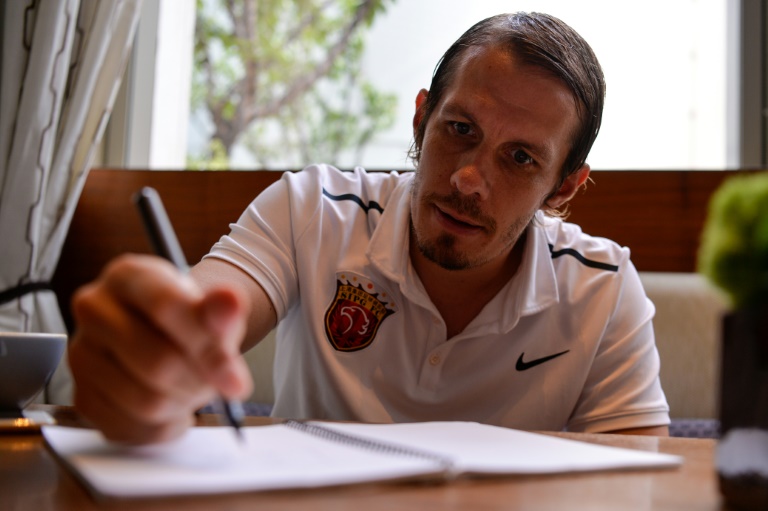Dane at vanguard of China’s World Cup quest
It is the World Cup final and China beat one of the traditional heavyweights showcasing a brand of fast, attacking football that their opponents cannot live with.

That, along with hosting the World Cup, is the dream of Chinese President Xi Jinping — and a Dane at a leading Chinese club is doing his part to try to make it happen.
Mads Davidsen does not necessarily think China will win the World Cup but he has no doubt that the world’s most populous country can finally become a competitive force and reach the World Cup knockout stages in about 15 years.
The 34-year-old Davidsen is well-placed to judge: he is technical director at Shanghai SIPG and as part of his wide-ranging remit the Chinese Super League (CSL) club brought in the likes of Brazilian international Oscar for 60 million euros from Chelsea, and lured Andre Villas-Boas as coach.
Foreign players and coaches have attracted unprecedented interest from the CSL, but China’s national team remain an embarrassment — 77th in the FIFA rankings and with only one World Cup appearance in 2002, when they failed to get a point or even score.
Davidsen, involved in top-level Chinese football since 2013 when he worked under former England manager Sven-Goran Eriksson at Guangzhou R&F, pinpoints coaching as the crux of China’s problem.
And Davidsen, who holds a UEFA Pro licence coaching badge and oversees football development at SIPG right down to the club’s five-year-olds, told AFP that focusing on famous imports misses the overarching picture.
– The big plan –

Shanghai SIPG football club director Mads Davidsen takes notes during an interview in Shanghai, on August 7, 2017
“It’s all part of the big plan. Chinese football said, ‘How can we improve the league fast? OK, get in good foreign players who can promote the league, good foreign coaches who will lift the current local players and then we are rolling’. That’s what’s happened the last three years.
“Everything in this plan is about improving the national team. I work for Shanghai SIPG, but where is SIPG in this project? Of course to promote our club and business, but also to help the president improve the national team.”
Contrary to the perceptions of some, Davidsen said Chinese players have good basic technique — better even than Europeans in some cases.
They also have the right attitude and work-rate, he said, and respect for authority in China means they adhere to instructions from coaches.
And Chinese have another, innate quality.
“I’ve never had more fast players. And where’s football going? It’s getting faster so it’s crucial to have pace, it’s a huge advantage,” said Davidsen, whose role includes overseeing SIPG’s development of 10,000 players aged five to 13 at academies across China.
So why has China failed to develop even one world-class footballer?
“It all comes down to the coaches and the environment around them,” said Davidsen, who played in Denmark’s third tier and by 29 was on the staff at leading Danish club Brondby, before moving to China in 2012.
“The main development area is that the coaches here are on too low a level. A key point: the Chinese coaches must travel more, see more of football round the world to understand the demands of the modern game.”
– Patience needed –
Xi — whose government is throwing money at football — and China’s success-starved fans will have to be patient.
“I have seen five or six-year-olds who can do things they cannot do in Europe because technically they train repetition, so many hours of repetition,” said Davidsen.
“In China they accept a lot of training because they have a different mindset and tough mentality.”
Ages eight to 13 are “the crucial years, when it is an open window physically, technically and tactically”, he said, adding that while the current crop of Chinese players have improved markedly in recent years, it is just the beginning.
SIPG appreciate his is a long-term project, he said, but many clubs in China are more focused on immediate success.
“You have to wait for a kid who is seven, it’s going to take 15 years,” Davidsen said.
“I’m not saying we’re going to have to wait 15 years — along the way there will be decent progression, which we have already seen — but you have to wait 15 years until you see a real effect from the programmes.
“It’s still new for most Chinese clubs to work strategically and build for long-term success.”
For more news your way
Download our app and read this and other great stories on the move. Available for Android and iOS.









